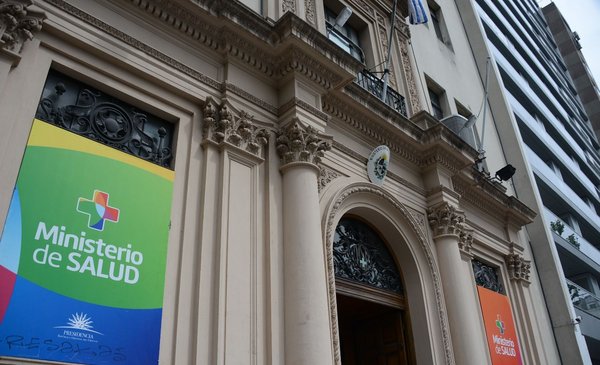The Ministry of Public Health (MSP) raised in the Rendering of Accounts the creation of a Information and Management Agency of the National Integrated Health System (SNIS), which will be specifically in charge of the “assistance and financial economic controller” of all providers. Its objectives are clearly specified: to guarantee the sustainability of the system, ensuring quality coverage and observance of user rights. It will do so through the collection, evaluation and analysis of all care and economic aspects of each of the system’s institutions. Thus, it will have an advisory role for the health authorities for decision-making.
In particular, an economic follow-up of the members of the system and of the regulation mechanisms of its financing.
Leading sources of the ministry substantiated The Observer the creation of this body based on the need for greater controls and for the portfolio to know in detail the evolution of the situation of these institutions. “There has to be greater prevention” they pointed out, referring to the trigger for this decision: the fall of Casa de Galicia. This was one of the biggest challenges the system had to face. A SNIS that, according to what the undersecretary José Luis Satdjian said a few weeks ago before Parliament, is the closest thing to a banking system. “When one falls, there may be a rush of users or nervousness with the rest of the providers.”
Thus, the conviction in the ministry lies in greater “prevention” measures so that a similar circumstance is repeated in the future.
This new agency will follow up and monitor compliance with the care requirements, plans and goals provided by law and control the quality of the services provided by providers. Among the aspects to monitor, the flow of users and their relationship with the human resources of each institution, the physical plant, the equipment and the technology are listed. The objective there is also to determine the performance of the providers in an integral way, through an analysis of the costs and the financing of the coverage, in order to determine a “rational use” of the human and financial resources in accordance with the needs. health of the population.
It will be a non-state public law person and its relationship with the Executive Branch will be directly through the MSP. He will have a general manager, who in turn will appoint an information manager and another assistance economic manager. In all cases, they must have exclusive dedication. The new institution will be exempt from all kinds of taxes, except for contributions to social security. Your future assets will be unattachable.
One of the bets I propose is, with the coordination of the Electronic Government and Knowledge Society Agency (Agesic), to define a standard in terminology, interoperability and access to information of all providers. Also, by this means, facilitate access for all users to their National Electronic Clinical Record and the information corresponding to the care services of the institution to which they are affiliated.
This agreement would allow the agency to instantly control the evolution of health indicators. For the start-up of this new entity, Public Health asks Parliament for $40 million by 2023 and another $56 million by 2024.
More demands and observers
Accountability also incorporates new requirements for providers. For example, in terms of transfers of credits for health quotas. the proposal is that they should always be notified to Junasa, which will have 15 working days to analyze the request. The transfer of collection rights may not occur when the economic sustainability of the institution is compromised. The intervention of the MSP or Junasa will not guarantee the existence and availability of the credits assigned by the provider.
On the other hand, the new budget text incorporates new obligations for the entities that make up the health system. They must require express authorization from the ministry to create, close or suspend non-care services. They must also be authorized by the authorities if they intend to participate, in any way, in commercial or non-commercial companies of any legal nature.
The Ministry of Public Health, from the approval of this project, will have a new power. When the portfolio detects situations that could compromise the continuity of any provider, both at a care and economic-financial level, may appoint one or more observers and thus collect permanent information on all aspects related to the entity’s operations, including the possibility of attending the sessions of the institution’s management.
If the text is approved without modification as of January 1st, no mutualist may agree with another or establish particular conditions that imply a differentiation between its affiliates and thus harm the principle of equal access to the system.







